| 1 x afterRenderRawModule mod_articles_category (READ MORE...) (2.46KB) (32.65%) | 60.10ms |
| 1 x afterRenderRawModule mod_tags_popular (Search) (42.43KB) (25.81%) | 47.50ms |
| 1 x afterRenderComponent com_tags (1.33MB) (12.69%) | 23.37ms |
| 1 x afterInitialise (1.28MB) (9.15%) | 16.83ms |
| 1 x beforeRenderRawModule mod_articles_category (READ MORE...) (439.86KB) (3.23%) | 5.95ms |
| 1 x afterRender (269.62KB) (2.8%) | 5.16ms |
| 1 x afterRoute (840.03KB) (2.25%) | 4.15ms |
| 1 x beforeRenderRawModule mod_custom (Chronic fatigue tied Alan to his bed but Q10 capsules saved him:) (244.28KB) (1.1%) | 2.03ms |
| 1 x afterRenderRawModule mod_menu (Main Menu - English) (186.95KB) (1.03%) | 1.90ms |
| 1 x afterLoad (456.41KB) (0.94%) | 1.72ms |
| 1 x afterRenderRawModule mod_languages (Sprogskift) (27.88KB) (0.92%) | 1.69ms |
| 1 x afterRenderRawModule mod_finder () (128.59KB) (0.88%) | 1.63ms |
| 1 x afterDispatch (27.44KB) (0.7%) | 1.29ms |
| 1 x After Access::preloadComponents (all components) (103.05KB) (0.61%) | 1.12ms |
| 1 x afterRenderRawModule mod_custom () (22.66KB) (0.49%) | 908μs |
| 1 x afterRenderRawModule mod_menu (Main Menu - English) (6.3KB) (0.42%) | 777μs |
| 1 x Before Access::preloadComponents (all components) (50.9KB) (0.37%) | 686μs |
| 1 x beforeRenderRawModule mod_menu (Main Menu - English) (29.14KB) (0.37%) | 684μs |
| 1 x afterRenderRawModule mod_languages (Sprogskift Mobil) (3.89KB) (0.36%) | 656μs |
| 1 x afterRenderRawModule mod_finder () (6.29KB) (0.29%) | 533μs |
| 1 x afterRenderRawModule mod_menu (Are you getting enough vitamins and minerals?) (22.39KB) (0.28%) | 510μs |
| 1 x beforeRenderModule mod_articles_category (READ MORE...) (20.82KB) (0.22%) | 402μs |
| 1 x afterRenderRawModule mod_menu (Did you know.....) (25.52KB) (0.15%) | 274μs |
| 1 x beforeRenderComponent com_tags (20.62KB) (0.15%) | 269μs |
| 1 x afterRenderRawModule mod_menu (The key to increased well-being) (17.83KB) (0.14%) | 256μs |
| 1 x afterRenderRawModule mod_custom (BOOST YOUR IMMUNE DEFENSE) (3.8KB) (0.11%) | 198μs |
| 1 x beforeRenderRawModule mod_custom () (8.66KB) (0.1%) | 180μs |
| 1 x beforeRenderRawModule mod_custom () (6.62KB) (0.08%) | 146μs |
| 1 x afterRenderRawModule mod_custom () (904B) (0.07%) | 136μs |
| 1 x beforeRenderRawModule mod_menu (Main Menu - English) (5.07KB) (0.06%) | 105μs |
| 1 x afterRenderRawModule mod_custom () (896B) (0.05%) | 92μs |
| 1 x beforeRenderRawModule mod_custom () (688B) (0.05%) | 83μs |
| 1 x afterRenderModule mod_menu (Main Menu - English) (4.86KB) (0.03%) | 63μs |
| 1 x afterRenderModule mod_custom (Chronic fatigue tied Alan to his bed but Q10 capsules saved him:) (1.3KB) (0.03%) | 60μs |
| 1 x afterRenderRawModule mod_custom (Get additionel and more detailed knowledge ) (1.55KB) (0.03%) | 57μs |
| 1 x afterRenderModule mod_custom () (1.23KB) (0.03%) | 49μs |
| 1 x afterRenderModule mod_menu (Main Menu - English) (1.25KB) (0.02%) | 45μs |
| 1 x beforeRenderModule mod_custom (Overview of vitamins, minerals, and essential fatty acids) (384B) (0.02%) | 45μs |
| 1 x afterRenderModule mod_finder () (1.23KB) (0.02%) | 44μs |
| 1 x After Access::getAssetRules (id:8 name:com_content) (7.05KB) (0.02%) | 42μs |
| 1 x afterRenderRawModule mod_custom (Chronic fatigue tied Alan to his bed but Q10 capsules saved him:) (1.06KB) (0.02%) | 42μs |
| 1 x afterRenderModule mod_articles_category (READ MORE...) (1.25KB) (0.02%) | 42μs |
| 1 x afterRenderModule mod_custom (BOOST YOUR IMMUNE DEFENSE) (1.28KB) (0.02%) | 42μs |
| 1 x afterRenderModule mod_custom (Overview of vitamins, minerals, and essential fatty acids) (1.31KB) (0.02%) | 36μs |
| 1 x beforeRenderRawModule mod_custom (BOOST YOUR IMMUNE DEFENSE) (6.45KB) (0.02%) | 34μs |
| 1 x afterRenderModule mod_finder () (3.29KB) (0.02%) | 34μs |
| 1 x beforeRenderRawModule mod_custom (Get additionel and more detailed knowledge ) (816B) (0.02%) | 32μs |
| 1 x afterRenderModule mod_languages (Sprogskift Mobil) (1.27KB) (0.02%) | 30μs |
| 1 x afterRenderRawModule mod_custom (Useful Links) (1.02KB) (0.02%) | 30μs |
| 1 x afterRenderModule mod_custom (Cholesterol-lowering without side effects:) (1.28KB) (0.02%) | 29μs |
| 1 x afterRenderModule mod_custom () (2.43KB) (0.01%) | 25μs |
| 1 x afterRenderModule mod_tags_popular (Search) (1.27KB) (0.01%) | 24μs |
| 1 x afterRenderModule mod_languages (Sprogskift) (5.31KB) (0.01%) | 24μs |
| 1 x afterRenderRawModule mod_custom (Overview of vitamins, minerals, and essential fatty acids) (960B) (0.01%) | 23μs |
| 1 x afterRenderRawModule mod_custom (Cholesterol-lowering without side effects:) (1.06KB) (0.01%) | 22μs |
| 1 x afterRenderModule mod_custom (Q10 goes by many names) (1.27KB) (0.01%) | 22μs |
| 1 x afterRenderModule mod_custom (Get additionel and more detailed knowledge ) (1.3KB) (0.01%) | 21μs |
| 1 x beforeRenderRawModule mod_languages (Sprogskift) (3.94KB) (0.01%) | 21μs |
| 1 x afterRenderModule mod_custom () (2.71KB) (0.01%) | 21μs |
| 1 x afterRenderModule mod_custom (Antiaging) (3.77KB) (0.01%) | 20μs |
| 1 x afterRenderModule mod_menu (Are you getting enough vitamins and minerals?) (1.3KB) (0.01%) | 20μs |
| 1 x afterRenderModule mod_menu (Did you know.....) (1.27KB) (0.01%) | 20μs |
| 1 x afterRenderModule mod_menu (The key to increased well-being) (1.28KB) (0.01%) | 20μs |
| 1 x afterRenderRawModule mod_custom (Q10 goes by many names) (928B) (0.01%) | 19μs |
| 1 x afterRenderModule mod_custom (Check this before you buy a Q10 product) (1.28KB) (0.01%) | 19μs |
| 1 x afterRenderModule mod_custom (Are you taking supplements) (1.28KB) (0.01%) | 19μs |
| 1 x afterRenderModule mod_custom (Weight loss that works) (1.27KB) (0.01%) | 19μs |
| 1 x afterRenderModule mod_custom (Useful Links) (1.27KB) (0.01%) | 19μs |
| 1 x beforeRenderRawModule mod_menu (The key to increased well-being) (736B) (0.01%) | 19μs |
| 1 x afterRenderRawModule mod_custom (Check this before you buy a Q10 product) (944B) (0.01%) | 18μs |
| 1 x afterRenderRawModule mod_custom (Weight loss that works) (1.03KB) (0.01%) | 18μs |
| 1 x beforeRenderRawModule mod_languages (Sprogskift Mobil) (912B) (0.01%) | 18μs |
| 1 x afterRenderRawModule mod_custom (Are you taking supplements) (1.03KB) (0.01%) | 17μs |
| 1 x Before Access::getAssetRules (id:8 name:com_content) (840B) (0.01%) | 16μs |
| 1 x afterRenderRawModule mod_custom (Antiaging) (912B) (0.01%) | 16μs |
| 1 x beforeRenderRawModule mod_tags_popular (Search) (2.36KB) (0.01%) | 15μs |
| 1 x beforeRenderRawModule mod_menu (Did you know.....) (720B) (0.01%) | 15μs |
| 1 x beforeRenderRawModule mod_custom (Useful Links) (1.06KB) (0.01%) | 13μs |
| 1 x beforeRenderModule mod_custom (BOOST YOUR IMMUNE DEFENSE) (6.81KB) (0.01%) | 13μs |
| 1 x beforeRenderRawModule mod_custom (Cholesterol-lowering without side effects:) (368B) (0.01%) | 13μs |
| 1 x beforeRenderRawModule mod_menu (Are you getting enough vitamins and minerals?) (2.5KB) (0.01%) | 12μs |
| 1 x beforeRenderModule mod_tags_popular (Search) (1.98KB) (0.01%) | 12μs |
| 1 x beforeRenderRawModule mod_custom (Overview of vitamins, minerals, and essential fatty acids) (768B) (0.01%) | 11μs |
| 1 x beforeRenderModule mod_menu (Are you getting enough vitamins and minerals?) (2.13KB) (0.01%) | 11μs |
| 1 x beforeRenderRawModule mod_finder () (6.34KB) (0.01%) | 11μs |
| 3 x beforeRenderModule mod_custom () (704B) (0.01%) | 11μs |
| 1 x beforeRenderRawModule mod_custom (Q10 goes by many names) (608B) (0.01%) | 10μs |
| 1 x beforeRenderModule mod_custom (Get additionel and more detailed knowledge ) (1.17KB) (0.01%) | 10μs |
| 1 x beforeRenderModule mod_custom (Q10 goes by many names) (208B) (0.01%) | 10μs |
| 1 x beforeRenderModule mod_menu (The key to increased well-being) (352B) (0.01%) | 10μs |
| 2 x beforeRenderModule mod_finder () (704B) (0.01%) | 10μs |
| 1 x beforeRenderRawModule mod_finder () (2.3KB) (0.01%) | 10μs |
| 1 x beforeRenderRawModule mod_custom (Are you taking supplements) (736B) (0%) | 9μs |
| 1 x beforeRenderRawModule mod_custom (Weight loss that works) (736B) (0%) | 9μs |
| 1 x beforeRenderRawModule mod_custom (Antiaging) (720B) (0%) | 9μs |
| 1 x beforeRenderModule mod_custom (Are you taking supplements) (352B) (0%) | 9μs |
| 1 x beforeRenderModule mod_custom (Antiaging) (336B) (0%) | 9μs |
| 1 x beforeRenderModule mod_menu (Did you know.....) (336B) (0%) | 9μs |
| 1 x beforeRenderModule mod_custom (Useful Links) (1.44KB) (0%) | 9μs |
| 1 x beforeRenderRawModule mod_custom (Check this before you buy a Q10 product) (752B) (0%) | 9μs |
| 1 x beforeRenderModule mod_custom (Check this before you buy a Q10 product) (352B) (0%) | 9μs |
| 1 x beforeRenderModule mod_custom (Weight loss that works) (336B) (0%) | 9μs |
| 2 x beforeRenderModule mod_menu (Main Menu - English) (720B) (0%) | 8μs |
| 1 x beforeRenderModule mod_languages (Sprogskift) (720B) (0%) | 7μs |
| 1 x beforeRenderModule mod_custom (Chronic fatigue tied Alan to his bed but Q10 capsules saved him:) (768B) (0%) | 4μs |
| 1 x beforeRenderModule mod_languages (Sprogskift Mobil) (720B) (0%) | 3μs |
| 1 x beforeRenderModule mod_custom (Cholesterol-lowering without side effects:) (752B) (0%) | 2μs |
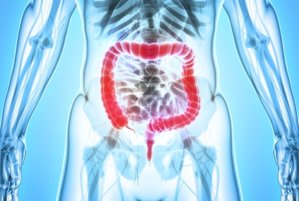 Irritable bowel syndrome – also known as IBS – is one of the most common diseases in the Western world. According to a new study from the University of Sheffield, England, many IBS patients lack vitamin D, and vitamin D supplements can alleviate symptoms like abdominal bloating, stomach cramps, diarrhea, and constipation. This is because vitamin D has a number of functions that are relevant for the digestion. Science generally knows very little about what triggers IBS, but it is accepted that disturbances in the intestinal microflora, food intolerance, and stress may contribute to the problem.
Irritable bowel syndrome – also known as IBS – is one of the most common diseases in the Western world. According to a new study from the University of Sheffield, England, many IBS patients lack vitamin D, and vitamin D supplements can alleviate symptoms like abdominal bloating, stomach cramps, diarrhea, and constipation. This is because vitamin D has a number of functions that are relevant for the digestion. Science generally knows very little about what triggers IBS, but it is accepted that disturbances in the intestinal microflora, food intolerance, and stress may contribute to the problem.







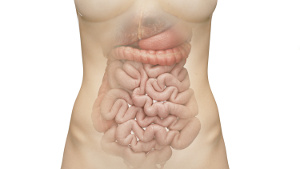 All the different
All the different 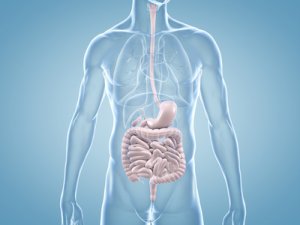 Every day, the intestinal immune system has to defend itself against hordes of microbes and toxins. If it fails to function optimally, there is an increased risk of infections, allergies, and inflammatory diseases. More and more research reveals that essential nutrients help to control the intestinal immune defense. Also, new research shows how important a well-functioning immune system is for our digestion and health in general. This article takes a closer look at the vitamins that are known to be particularly important for the intestinal immune system. Another thing that is vital is to have adequate amounts of gastric juice.
Every day, the intestinal immune system has to defend itself against hordes of microbes and toxins. If it fails to function optimally, there is an increased risk of infections, allergies, and inflammatory diseases. More and more research reveals that essential nutrients help to control the intestinal immune defense. Also, new research shows how important a well-functioning immune system is for our digestion and health in general. This article takes a closer look at the vitamins that are known to be particularly important for the intestinal immune system. Another thing that is vital is to have adequate amounts of gastric juice.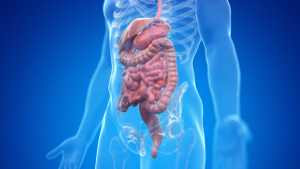

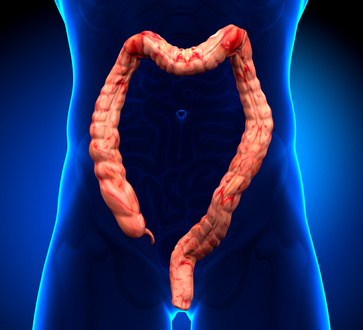 A recently published study shows promising results of giving daily supplements of vitamin D to sufferers of Crohn's disease. Apparently, the vitamin improves the intestinal barrier dysfunction associated with the ailment.
A recently published study shows promising results of giving daily supplements of vitamin D to sufferers of Crohn's disease. Apparently, the vitamin improves the intestinal barrier dysfunction associated with the ailment.
 "After about one week of taking the Q10 supplement I could feel a huge difference," says 23-year old Alan Piccini, who has been suffering from extreme fatigue and muscle aches ever since he was a child.
"After about one week of taking the Q10 supplement I could feel a huge difference," says 23-year old Alan Piccini, who has been suffering from extreme fatigue and muscle aches ever since he was a child. “Taking capsules with co-enzyme Q10 has freed me of the severe side effects of my cholesterol lowering medicine,” Mrs Franken explains.
“Taking capsules with co-enzyme Q10 has freed me of the severe side effects of my cholesterol lowering medicine,” Mrs Franken explains.